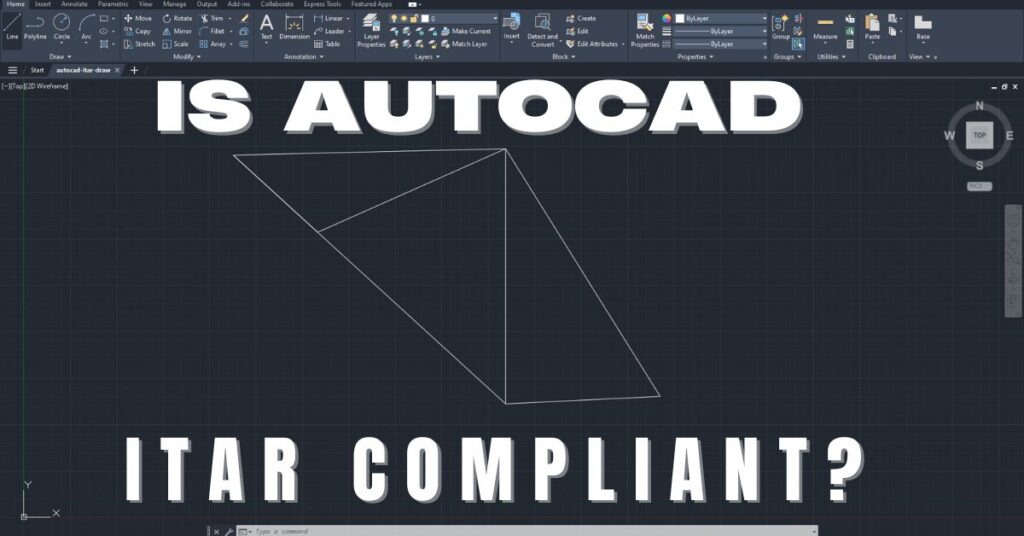ITAR Compliance: Ensuring National Security and Export Control
ITAR regulates the export and import of defense-related items, services, and data to prevent unauthorized foreign parties from accessing sensitive technology. Compliance is essential for defense industry businesses and those dealing with defense data. It involves protecting technical data, including data security, cloud compliance, document control, and data management.
ITAR Data Security
ITAR data security is critical to ITAR compliance as it requires protection of sensitive technical data. The regulations require companies to safeguard the data from unauthorized access, modification, or disclosure. ITAR data security encompasses all aspects of data protection, from encryption to secure storage and access controls.
Examples of systems that need ITAR data security include email systems, file servers, backup systems, and mobile devices. Companies must ensure that access to ITAR data is restricted only to authorized individuals with the proper clearance level. Additionally, companies must have policies and procedures in place to safeguard the data in the event of a data breach.
ITAR Cloud Compliance
Cloud computing has become a popular solution for many businesses due to its cost-effectiveness and scalability. However, companies that deal with ITAR data must ensure that they comply with ITAR cloud compliance requirements. ITAR cloud compliance requires that companies choose a cloud provider that meets ITAR requirements for data protection, access controls, and compliance reporting.
Examples of cloud-based systems that require ITAR compliance include document management systems, email systems, and backup systems. ITAR cloud compliance also requires that data be stored only in ITAR-compliant locations and that the data be encrypted both in transit and at rest.
ITAR Document Control Requirements
Document control is a crucial part of ITAR compliance. Companies must have strong procedures to protect sensitive technical data. ITAR regulations require companies to mark all documents as ITAR-controlled, restrict access, and track changes. Systems such as document management, file servers, and email systems must comply with ITAR. ITAR compliance also includes secure and auditable destruction of ITAR data.
ITAR Data Management
ITAR data management involves the proper management of ITAR data throughout its lifecycle. This includes data creation, storage, retrieval, sharing, and destruction. Companies must ensure that they comply with all ITAR regulations regarding the protection, storage, and sharing of this data. Examples of systems that require ITAR data management include data backup systems, document management systems, and email systems. Any unauthorized disclosure of ITAR data can result in severe penalties, including fines and imprisonment.
Conclusion
ITAR compliance is crucial for businesses involved in defense or handling defense-related data. Compliance includes data security, cloud compliance, document control, and protection of ITAR data. Failure to comply can lead to severe penalties such as fines and imprisonment. Therefore, companies must take ITAR compliance seriously by implementing robust policies and procedures. They must also protect ITAR data systems from unauthorized access, modification, or disclosure.
Share in Social Media
See More Case Studies

Securing Defense Contracts: A DFARS 252.204-7012 Compliance Case Study
Discover how Cleared Systems helped a Federal Contractor successfully achieve DFARS 252.204-7012 compliance by strengthening its cybersecurity posture, giving it a competitive edge when bidding for DoD Contracts.

What is GCC High? For ITAR & CMMC 2.0
Microsoft 365 Government Community Cloud (GCC) High is a specialized cloud solution tailored for U.S. federal, state, local, tribal, and territorial government organizations, as well as for contractors who hold or process data subject to specific security regulations. In this article, we will explore the features, benefits, and differences between Microsoft 365 GCC High and other Office 365 offerings.

Is AutoCAD ITAR Compliant? A Comprehensive Guide for Defense Manufacturers
Defense contractors and manufacturers working with sensitive military technologies face a critical question when selecting computer-aided design software: Is AutoCAD ITAR compliant? This question becomes

How to Get Help in Windows: Guide to Security and Compliance Support
In today’s digital landscape, ensuring your computer systems are secure and compliant with industry regulations is essential for both businesses and individuals. Windows, as one

Microsoft Copilot for GCC High: Enhancing Security and Compliance
In today’s fast-evolving digital landscape, organizations that handle sensitive data, particularly those in government sectors or defense contractors, face growing pressure to maintain strict security
Partner with Us for Compliance & Protection
We’re happy to answer any questions you may have and help you determine which of our services best fit your needs.
Your benefits:
- Client-oriented
- Security
- Compliance
- Peace of mind
- Efficiency
- Trust
What happens next?
Schedule an initial meeting
Arrange a discovery and assessment call
Tailor a proposal and solution
